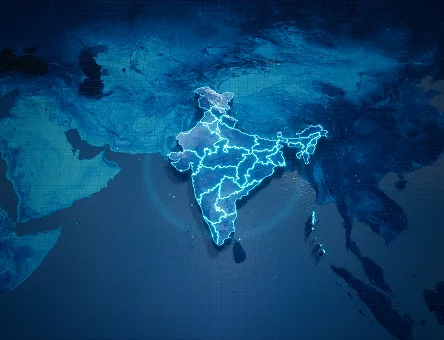UNION BUDGET 2025 AND INDIA’S GCC AMBITIONS

INDIA GCC STORY:
The Global Capability Center (GCC) landscape in India has undergone a remarkable transformation over the past two decades. Originally conceived as cost-saving hubs for multinational companies, GCCs have evolved into strategic assets driving innovation, digital transformation, and business value.
The concept of GCCs in India took root in the 1990s and through the early 2000s. The primary driver was cost efficiency, as India offered a large pool of highly skilled and relatively inexpensive talent compared to developed markets.
The centers established then were primarily focused on IT Services, Software Development, and BPO. The Indian government’s supportive policies, including the establishment of Software Technology Parks (STPs) and Special Economic Zones (SEZs), further facilitated the growth of the GCCs.
The GCC landscape in India began to diversify and expand from the mid-2000s. Companies started leveraging India not just for cost advantages but also for the quality and expertise of its talent pool. The focus shifted from basic IT services to more complex and value-added functions such as research and development (R&D), product engineering, and knowledge process outsourcing (KPO).
The evolution continued through the 2010s, as the GCCs became integral units of their parent organizations as the strategic hubs for delivering business outcomes that were core to their global operations while driving innovation and digital transformation.
Through this period, GCCs in India became pivotal in driving digital initiatives, such as the adoption of artificial intelligence (AI), machine learning (ML), big data analytics, cloud computing, and the Internet of Things (IoT).
As we look to the future, the next phase of growth for GCCs in India promises to be even more exciting, with new opportunities, challenges, and possibilities on the horizon, as they expand into new domains and continue to drive innovation to solve complex business problems, improve customer experience, and drive business growth.
KEY HIGHLIGHTS ON GCCs AND DEEP TECH ECOSYSTEM FROM UNION BUDGET 2025:
1. Strategic Expansion of GCCs to New Horizons:
A comprehensive national framework will guide states in promoting Global Capability Centers (GCCs) beyond major cities into emerging Tier-2 locations. This strategy includes recommendations for improving talent pools, infrastructure, regulatory reforms in building byelaws, and mechanisms for stronger industry collaboration.
2. Boosting Deep Tech Innovation with Fiscal Incentives:
The budget introduces targeted tax benefits and funding grants specifically for deep tech startups focusing on areas like Artificial Intelligence, semiconductors, and quantum computing. These incentives aim to reduce financial barriers, encouraging more R&D in these high-potential fields.
3. Cultivating a Skilled Workforce for Future Technologies:
New educational initiatives and partnerships between academia and industry will focus on developing skills crucial for deep tech and GCC roles. This effort includes tailored programs in advanced technology areas, ensuring a steady supply of skilled professionals ready for global markets.
4. Establishing Hubs for Deep Tech and GCC Synergy:
The government plans to set up Deep Tech Parks and Centers of Excellence (CoEs). These hubs will not only provide cutting-edge facilities but also serve as collaborative spaces where GCCs can leverage deep tech innovations, fostering a symbiotic growth environment.
5. Facilitating Global Partnerships in Tech and Business:
Policies will be reformed to ease cross-border data movement, enhance IP rights protection, and encourage joint research projects. This initiative aims to attract more international companies to establish or expand their GCCs in India while simultaneously enabling Indian deep tech firms to connect with global markets and technology leaders.
WHAT DOES THIS SPELL FOR THE INDIAN JOB MARKET OVER THE NEXT DECADE:
1. Decentralized Hub Expansion:
The strategic move towards Tier-2 cities will decentralize the concentration of GCCs, leading to widespread economic benefits. This shift will not only alleviate urban overcrowding but also harness the untapped potential of regional talent, fostering local economic development and innovation.
2. De-facto Second Headquarters for MNCs:
By 2030, India’s GCCs will not just support operations but will act as de-facto second headquarters for many multinational corporations. These centers will wield significant influence over global business strategies, product innovation, and market expansions, making India indispensable in the corporate decision-making process.
3. Global Strategic Centers:
Through enhanced policy frameworks for data exchange and intellectual property, GCCs in India will become critical nodes in multinational corporations’ global strategy. This will position India as a hub not just for cost-effective services but for strategic decision-making and pioneering tech solutions.
4. Talent Ecosystem Transformation:
By focusing on specific skill enhancement programs and attracting global talent, India will cultivate an unparalleled talent ecosystem. GCCs will benefit from this by employing a workforce that’s not only technically proficient but also culturally diverse, driving creativity and problem-solving capabilities.
5. Socio-Economic Elevation through High-Value Jobs:
The growth trajectory of GCCs will lead to the creation of a multitude of high-value jobs, significantly impacting the socio-economic framework. This job growth will be characterized by roles that require advanced skills, offering better wages and opportunities for career advancement, thereby uplifting the living standards and economic status in both urban and emerging city landscapes.
CONCLUSION
Government of India is starting to demonstrate a profound understanding of the strategic value inherent in the Global Capability Centers (GCC) sector. Presently, targeted policy interventions are being implemented to reposition India not merely as a service center but as a pivotal node for global corporate strategy. This vision has set GCCs on a path to evolve into de-facto secondary headquarters for multinational entities, fostering ongoing expansion into new regions, driving continuous innovation, and influencing global business decisions. By enhancing skill development, attracting premier talent, and catalyzing economic growth, these centers are affirming India’s role as a leading force in the international business and technology landscape, with significant implications continuing to unfold by 2030.
“A national framework will be formulated as guidance to states for promoting Global Capability Centres in emerging Tier-2 cities. This will suggest measures for enhancing availability of talent and infrastructure, building byelaw reforms, and mechanisms for collaboration with industry”
– Smt. Nirmala Sitharaman, Honourable Finance Minister of India, Union Budget 2025
CITATIONS
BusinessWorld: National Framework for GCCs Announced
Economic Times: Budget 2025 and India’s GCC Surge
Business Standard: Budget 2025 Boosts Domestic Manufacturing
For more insights on our GCC services, contact us at info@peopleequation.io


